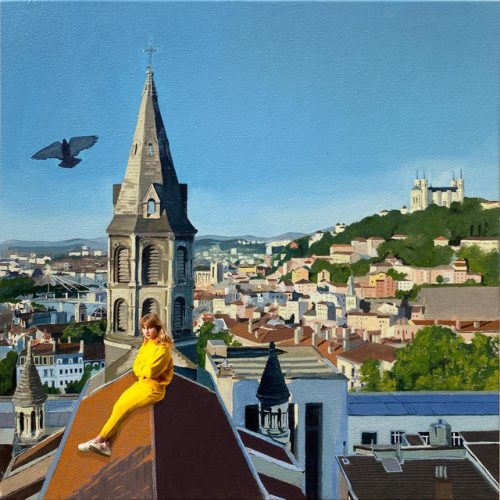At first, it seems that Mary Middlefield’s beautiful song “Band Aid” is about the kind of unrequited love that takes place in what is already supposed to be a romantic relationship.
The relationship is unequal – one person is looking for love, but the other person is only looking for some a way to patch over a small wound and a way to fill in a personal gap.
Within the tuneful melody and Mary Middlefield’s sweet voice, there’s a prevailing sadness, a sense of regret that’s bound up in confusion. “Is there anything I could have done to make it work?” “Was there something that I did wrong?”
The lyrics express that uncertainty about whether there ever really was possibility in a relationship, or whether there was some kind of undiscovered formula which could have resuscitated the romance. Was there some sort of fault or flaw that sent the relationship off the rails?
But you know, ultimately, that this relationship never really existed.
It was a mirage, an unattainable vision of an oasis that vanishes when you approach the place where it should have been.
Like a performer on the stage, they love to be seen, but the art of the person’s heart is not seen. The performance is perceived as entertainment at best, or as a way to pass the time, or as a distraction from life’s disappointments and regrets. The performer is always out in the open, in plain view, but is more looked at than looked into. The story is told, but not heard. The relationship, now in a not distant but clearly defined past, is/was continually open to question. Was it ever even a relationship of any kind?
It is an equivalency of metaphors. There are relationships that are like heartfelt performances for uninterested and unappreciative audiences. And there are heartfelt, heart-full, perceptive performances that go un-perceived even by the audience that is physically present. Such a performance, such art, is like a one-sided relationship. There’s so much to be known, to be discovered – but it isn’t acknowledged, and it seems it won’t ever be appreciated.
Mary Middlefield’s “Band Aid” is a lilting, deceptively joyful tune that seems to betray an awareness of both sides of that equivalency. It is a happy little mask over the face in the crowd – the face in front of the crowd, as it happens. It’s a face that you see if you’ve worn that mask yourself at some point, and you have wondered whether you lived that reality alone.
Middlefield’s “Band Aid” lets you know that you are not alone in feeling unseen… and in knowing this, you can begin to feel the joyful lilt as the beginning of an authentic internal warmth, rather than merely as a masquerade.







